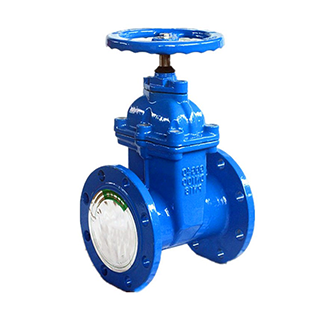Supplier of Carbon Steel Pipe Fittings for Industrial Applications and Construction Needs
The Role of Carbon Steel Pipe Fittings in Modern Infrastructure
In the realm of industrial construction and infrastructure development, carbon steel pipe fittings play a crucial role in ensuring the stability and efficiency of piping systems. Recognized for their strength, durability, and adaptability, carbon steel pipe fittings are a standard choice for various applications across multiple industries including oil and gas, manufacturing, power generation, and water treatment.
Understanding Carbon Steel
Carbon steel is an alloy primarily composed of iron and carbon, with carbon content ranging from 0.2% to 2.1%. The varying levels of carbon affect the material's hardness, strength, and ductility. This range makes carbon steel suitable for a wide variety of applications, as it strikes a balance between flexibility and strength. Its robust qualities enable it to withstand high pressures and temperatures, making it ideal for heavy-duty applications.
Types of Carbon Steel Pipe Fittings
Carbon steel pipe fittings are available in several types, each designed for specific functions and applications. The most common types include
1. Elbows Used to change the direction of flow in a piping system, elbows come in various angles, such as 45° and 90°. 2. Tees These fittings are T-shaped and allow for the branching of a pipeline, facilitating the flow of fluid from one pipeline to another. 3. Reducers Employed to connect pipes of different diameters, reducers are essential for managing flow rates in a piping system. 4. Caps These are used to seal the end of a pipe, preventing fluid from escaping and ensuring system integrity. 5. Flanges A flange is a method of connecting pipes, valves, or equipment to form a piping system, providing a robust, leak-proof joint.
Advantages of Carbon Steel Pipe Fittings
The choice of carbon steel pipe fittings presents numerous advantages
1. Strength and Durability Carbon steel is known for its high tensile strength, making fittings resistant to deformation and failure under pressure. This characteristic is essential in high-stress environments like oil and gas pipelines.
carbon steel pipe fittings supplier

2. Cost-Effectiveness Compared to other materials, such as stainless steel or plastic, carbon steel is relatively inexpensive. This affordability makes it a popular choice for large-scale projects where budget constraints are a factor.
3. Versatility Carbon steel fittings can be used in a variety of applications, from high-pressure gas lines to residential water systems. This versatility ensures that they meet the needs of different industries.
4. Ease of Fabrication Carbon steel is easy to cut, shape, and join, allowing for efficient assembly of complex piping systems. This fabricated adaptability helps engineers streamline project timelines.
5. Resistance to High Temperatures Carbon steel fittings can withstand high temperatures, making them suitable for industries like power generation, where heat is a constant factor.
Selecting a Reliable Supplier
When it comes to sourcing carbon steel pipe fittings, choosing a reliable supplier is paramount to ensuring quality and safety. Working with reputable suppliers who adhere to international standards can mitigate risks associated with substandard materials. A competent supplier should provide certifications for their product, test reports, and various options that meet specific industry requirements.
Additionally, a knowledgeable supplier can assist in determining the right specifications for your project, including grades of carbon steel, types of fittings required, and compliance with local regulations.
Conclusion
Carbon steel pipe fittings are indispensable components in modern infrastructure, contributing to the reliability and efficiency of piping systems across multiple sectors. Their strength, versatility, and affordability make them the go-to choice for engineers and construction professionals alike. As industries evolve and demand for high-quality materials increases, ensuring you partner with a reputable supplier can enhance the success of your projects and maintain safety standards.
In summary, whether you are involved in a large-scale industrial project or a smaller residential setup, understanding the attributes and benefits of carbon steel pipe fittings will guide you in making informed decisions that resonate throughout your construction and infrastructure needs.
-
The Key to Fluid Control: Exploring the Advantages of Ball Valves in Industrial SystemsNewsJul.09,2025
-
The Versatile World of 1, 2, and 3 Piece Ball ValvesNewsJul.09,2025
-
Stainless Steel Ball Valves: The Ideal Choice for Efficient Flow ControlNewsJul.09,2025
-
Optimizing Fluid Control with Ball Float ValvesNewsJul.09,2025
-
Manual Gate Valves: Essential for Control and EfficiencyNewsJul.09,2025
-
Everything You Need to Know About Butterfly ValvesNewsJul.09,2025
-
The Versatility of Wafer Type Butterfly ValvesNewsJul.08,2025




